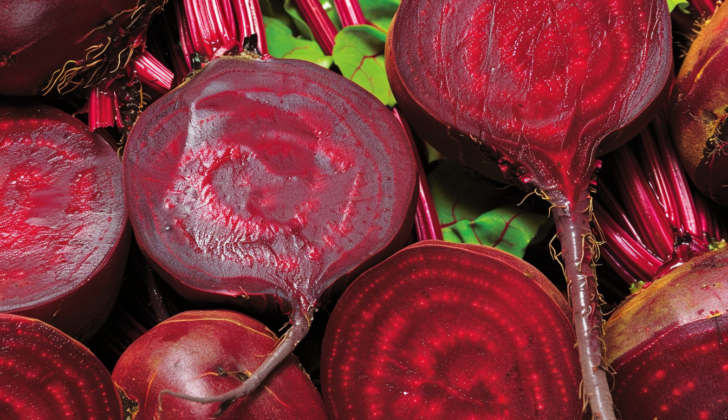What is Beeturia (Beet Pee)?
Beeturia is a term for when your urine changes color, usually to pink or deep red, after you eat beets or food colored with beetroot. Around 10-14% of people can experience this, and it’s more common in those dealing with iron deficiency or diseases that affect absorption of nutrients. Beets contain pigments called betacyanins, and when these pigments are isolated, the term for the urine discoloration is technically called “betacyaniuria”. In the past, people thought beeturia occurred due to food allergies or bacteria in the urinary tract, but further research has shown these theories aren’t accurate.
What Causes Beeturia (Beet Pee)?
Research shows that people with higher occurrences of beeturia – the passing of red or pink urine after eating beetroot or foods colored with beetroot extract – might have this due to being iron deficient or because of high iron absorption in their digestive systems. When these conditions are present, it’s suggested that there’s a higher uptake of betacyanins – pigments present in beetroot – which can then show up in urine.
Other research has highlighted that the stomach and small intestine’s acidity levels may play a role in how much betacyanin is absorbed, not the liver or kidneys clearing it out.
Also, what else someone eats at the same time can have an effect. For example, eating foods rich in oxalic acid, like spinach or rhubarb, might increase how much of the betacyanin alkaloid – a bitter tasting compound in plants – is absorbed.
Risk Factors and Frequency for Beeturia (Beet Pee)
Various researches and groups have shown that if enough beetroot is eaten, 10% to 14% of the regular population may experience beeturia, a condition where your urine can turn red or pink. This percentage climbs to a notable 45% for those suffering from pernicious anemia, a type of anemia where your body can’t make enough healthy red blood cells. There doesn’t seem to be any significant differences between males and females when it comes to this condition. Beeturia isn’t widely studied as it appears to be harmless, and there isn’t any available information if it varies among different populations.
Signs and Symptoms of Beeturia (Beet Pee)
Beeturia is a harmless condition that doesn’t have any distinct symptoms or history. If a doctor is examining a person with beeturia, they will usually look for any signs of other possible medical conditions, like kidney stones, kidney cancer, cystitis, urinary tract infection, abnormal blood vessel formation, kidney failure, blood disorders, and anemia.
Doctors could also try to look for:
- Tenderness or swelling over the kidney area
- Tenderness or swelling over the lower abdomen
- Signs of paleness on the skin, including the conjunctiva (the tissue that covers the front of the eye)
- Other signs of abnormal blood vessels
Some reported cases show people with beeturia also complain about dark, tar-like stools. If someone experiences these two issues together, a doctor would ask about their diet and whether they’ve had similar issues in the past. Both beeturia and dark stools can be caused by eating beets.
Testing for Beeturia (Beet Pee)
The only test needed to diagnose this condition is a urinalysis, which involves checking your urine under a microscope. However, your doctor might also want to test you for iron deficiency anemia since it’s quite common in individuals with this condition. They would do this using a complete blood count that includes checking your red cell distribution width (RDW) – a measurement of the variation in size of your red blood cells. They might also consider testing for disorders like hemochromatosis that affect how your body absorbs iron.
Treatment Options for Beeturia (Beet Pee)
Beeturia, the presence of red or pink urine after eating beetroot, is not a harmful condition and does not need specific treatment. However, if you find this situation disturbing or need to take a urine test for other reasons, you might want to change your diet to avoid beetroot and foods or drinks containing beetroot. The red or pink urine might interfere with getting accurate test results. Additionally, if you also have an underlying condition like anemia or gastrointestinal malabsorption (trouble absorbing nutrients from food), you should consult a healthcare professional to address these issues.
What else can Beeturia (Beet Pee) be?
When a patient reports that they have “dark, bloody urine,” this usually leads a medical professional to investigate for causes of painless blood in the urine. This could be due to a variety of reasons, such as:
- Kidney cancer (renal cell carcinoma)
- Kidney stones (renal calculi)
- Kidney failure
- Bleeding bladder inflammation (hemorrhagic cystitis)
- An abnormal connection between an artery and a vein in the bladder wall (arteriovenous malformation)
- Urinary tract infections
- A condition where muscle breaks down and releases into the bloodstream (rhabdomyolysis)
- Blood disorders, porphyria (a group of rare genetic disorders), or disorders where red blood cells break down too fast (hemolytic disorders), as these could change the color of the urine
Additionally, further investigations may be needed for conditions such as excess iron (hemochromatosis) and low red blood cell counts (anemia), as these conditions can make it more likely to have beet-colored urine. In people who have had surgeries on their abdominal aorta, the main artery in the body, an uncommon but potential cause could be an incorrect connection between the aorta and the bladder (aortic-bladder fistula).
What to expect with Beeturia (Beet Pee)
If beeturia, which is a harmless condition where your urine turns red or pink after eating beets or foods colored with beetroot, is the reason for your urine changing color, you have a very good outlook. This condition is not harmful and typically doesn’t cause any health issues.
Possible Complications When Diagnosed with Beeturia (Beet Pee)
While no physical complications have been discovered, a doctor who doesn’t use microscopic urinalysis might be inclined to request extra tests or excessively use antibiotics. Many pee tests available commercially depend on color changes, which could result in incorrect diagnosis if a comprehensive patient history isn’t attentively collected.
- No physical complications
- Risk of excessive tests
- Potential overuse of antibiotics
- Reliance on color-based urine tests
- Possible misdiagnosis if patient history not thorough
Preventing Beeturia (Beet Pee)
Patients should be informed that having a reddish color in the urine after eating beets, a condition known as beeturia, is not harmful. However, this can sometimes indicate low iron levels in the body or be related to how your body absorbs nutrients, which is influenced by your genes. If the reddish urine is causing concern to you or your care providers, changing your diet might help.












